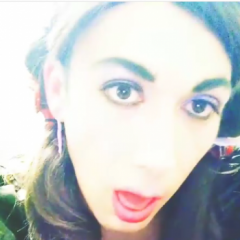P. Diddy was acquitted on Wednesday of sex trafficking and racketeering charges, but convicted of transportation to engage in prostitution after an eight-week federal trial.
A jury in Manhattan found Mr. Combs, 55, not guilty of the most serious charges against him. Prosecutors had accused the famed producer of coercing two former girlfriends, Casandra Ventura and a woman who testified pseudonymously as “Jane,” into unwanted sex with male prostitutes, aided by a team of pliant employees.
Even with a partial conviction, the result is something of a victory for Mr. Combs, who was elated in court. He had faced a possible life sentence had he been convicted of other counts in the case. He could be sentenced up to a maximum of 20 years in prison on the two transportation for prostitution charges — 10 years for each count — but the final sentence will be up to a judge.
Here’s what else to know:
Racketeering: Jurors said on Tuesday that there were “unpersuadable opinions on both sides” in regard to the racketeering count. Racketeering law was once intended to combat the Mafia but has become central in cases against R. Kelly, Young Thug, Wall Street executives, gang members and President Trump.
Possible release: A defense lawyer immediately asked the judge to release Mr. Combs from jail to await sentencing now that he no longer faces sex-trafficking and racketeering charges. The judge said he would hear arguments on the question before ruling.
The jury: The racially diverse panel of eight men and four women, ranging in age from 30 to 74, sent several notes to the judge during deliberations, both asking for evidence and expressing concern about one juror.
Felony charges: Had he been convicted of sex trafficking, Mr. Combs would have faced a sentence of 15 years to life in prison. The charge of racketeering conspiracy also carries a potential life sentence.
Prosecution’s case: Mr. Combs was portrayed as the head of a criminal enterprise who “used power, violence and fear to get what he wanted” in the government’s closing argument. A prosecutor said Mr. Combs used violence, financial control and threats to manipulate his girlfriends into physically taxing sex sessions with hired men, while he masturbated and filmed.
Defense’s case: In its closing argument, Mr. Combs’s defense team told jurors that the government’s evidence contradicted its case. It acknowledged that Mr. Combs had engaged in domestic violence and drug use, but argued that the accusation that Mr. Combs was a sex trafficker or criminal ringleader was “badly exaggerated.”
Rare
Rare
Rare
Rare
Rare















